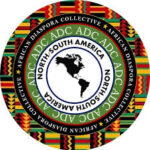AES Countries VS ECOWAS: A Regional Crisis Fueled by Misinformation, Disinformation, and Military Regimes Propaganda.
By Raymond Enoch
The political upheavals in Mali, Niger, and Burkina Faso have reverberated across the West African region, raising questions about the underlying causes and implications of the recent military coups. These countries, once part of the Economic Community of West African States (ECOWAS), have now left the bloc, citing sovereignty concerns and dissatisfaction with ECOWAS’s sanctions. However, the reality is far more complex, intertwined with misinformation and disinformation campaigns, political maneuvering, and an apparent failure in diplomatic channels.
At the heart of the military takeovers lies a perceived threat to national sovereignty. But who exactly is the threat, and why?
The role of ECOWAS in mediating and resolving the crisis cannot be ignored. The regional body, established to foster economic cooperation and political stability, has frequently acted as a mediator during political crises. However, in recent years, ECOWAS has taken a firmer stance, imposing sanctions and calling for the restoration of democratic governance after the military juntas in Mali, Niger, and Burkina Faso seized power.
ECOWAS sanctions, stipulated in Articles 58, 77, and 91 of the ECOWAS Treaty, are meant to maintain stability and peace within the region by discouraging unconstitutional changes of government. While these measures are legally grounded, their implementation has sparked criticism from the AES (Anti-ECOWAS States) countries, which claim that their sovereignty is being compromised by what they see as perceived external interference. The sanctions, designed to isolate these countries politically and economically, have only intensified the standoff, creating a breeding ground for misinformation and disinformation.
In the wake of the military takeovers, AES countries have resorted to social media campaigns to shape public perception, portraying ECOWAS as an imperialistic force that seeks to undermine their sovereignty. This narrative has been bolstered by a continuous stream of misinformation and disinformation, creating an atmosphere of distrust and hostility. Military regimes in these countries have used these platforms to rally domestic support and deflect criticisms.
The strategic use of misinformation, especially through social media, has undermined the very diplomatic processes designed to address the root causes of the crisis. Instead of engaging with ECOWAS’s diplomatic channels, including potential arbitration through the ECOWAS Court, these regimes have opted for a public relations war aimed at discrediting the regional body which resources were used to establish since fifty years ago. The result has been a diplomatic deadlock that further destabilizes the region and hampers the possibility of peaceful resolution.
In addition to the political fallout, AES countries have taken steps to establish their own economic systems, such as launching a new regional Central Bank and proposing a new passport for ECOWAS members. While these initiatives may seem like a move toward greater independence, they come with significant challenges, including the difficulty of integrating these new systems into the larger framework of international organizations like the International Immigration Organization and even Bank for West Africa.
The practical challenges of such ambitious plans cannot be overstated. Establishing an independent currency and passport system could isolate these countries further, potentially exacerbating economic difficulties for their populations. Furthermore, these actions signal a shift away from the regional cooperation that ECOWAS was originally designed to foster, raising concerns about long-term stability and growth in West Africa.
The path taken by the AES countries, from military coups to economic isolation, has severe consequences not only for the countries involved but for the broader West African region. Regional cooperation, economic development, and political stability—all pillars of the ECOWAS framework. The lack of communication and collaboration with ECOWAS compromises the potential for peaceful resolutions to the crises in these countries.
Rather than engaging in a social media campaign and pursuing self-interest at the cost of broader regional stability, it would be more constructive for the AES countries to return to the diplomatic table. There, through dialogue and compromise, they might better address the underlying political and economic issues and find a path forward that preserves both sovereignty and regional cooperation.
The crises in Mali, Niger, and Burkina Faso are more than just isolated incidents of military coups—they are symptomatic of deeper issues facing West Africa. While the desire for sovereignty is understandable, the methods employed by the AES countries have thus far been counterproductive, fostering division and undermining efforts at peaceful resolution. For the sake of the populations in these countries and the broader West African community, a more nuanced approach that focuses on dialogue, collaboration, and diplomatic engagement is crucial to restoring stability and ensuring sustainable growth in the region.
As misinformation and disinformation continue to fuel tensions, it is clear that the future of West Africa hinges on the willingness of all parties involved to set aside political maneuvering in favor of regional unity and cooperation. Only then can true progress be made.









